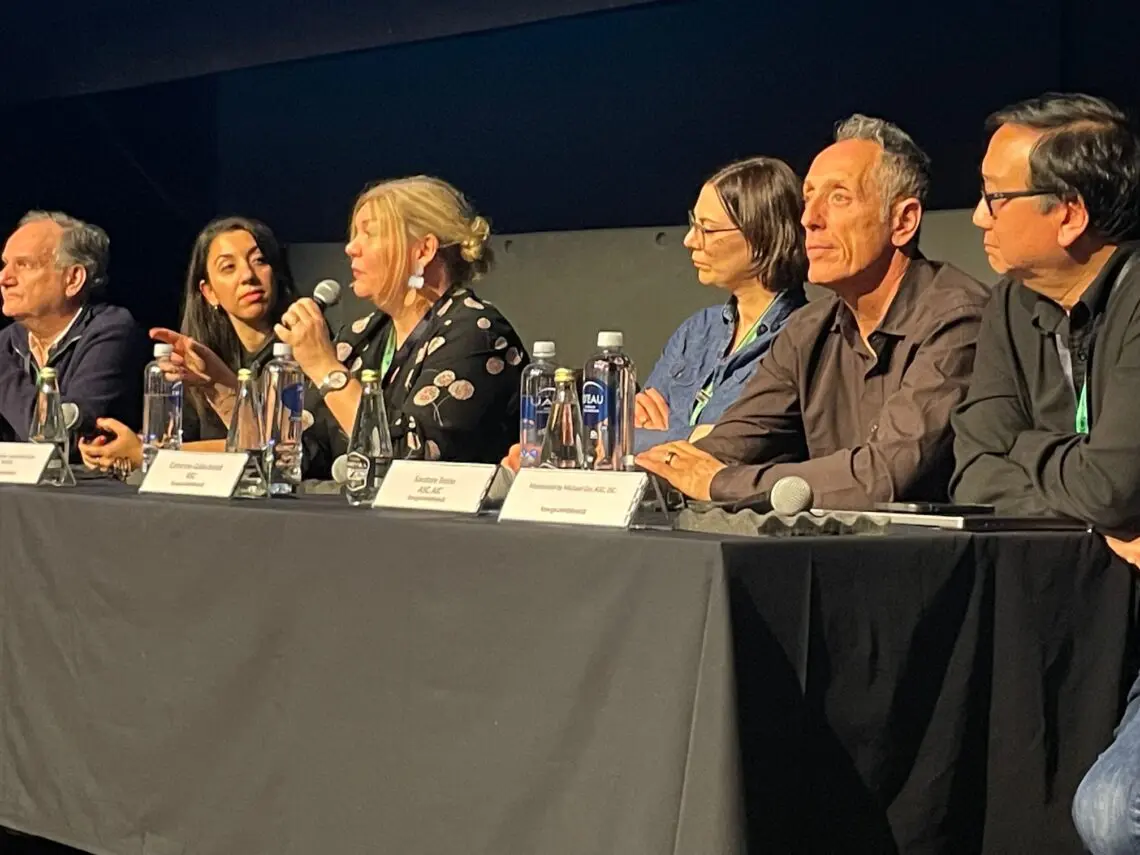The American Society of Cinematographers presented a discussion about artificial intelligence, focused on how it’s being used today in filmmaking and its legal implications, during cinematography festival EnergaCamerimage.
To the latter, there were a lot of questions for panelist Angela Dunning, an attorney at Cleary Gottlieb, including those surrounding copyright class-action suits against developers for the training of AI models.
“The position that I think will prevail in the U.S. when all the dust settles after court decisions and appeals, is that that training is fair use,” she said, noting that this is an area in which she is currently working and suggesting that it’s “very much like the human process of ingesting information.” As an example, she suggested that one might “learn what a flower is from a garden, from your books your mom used to read you, from pictures of flowers in a magazine, from paintings that Georgia O’Keeffe has hanging in the museum. If you take all of that learning and you swirl it around in your brain and you make something new, that’s yours, and if you use all of that learning, and you make something that looks like a Georgia O’Keeffe painting, that’s copyright infringement.
“Those concepts are the same, whether we’re talking about AI or any of the work anyone in this room is doing,” she added.
Popular on Variety Pointing to Picasso, who has been quoted as having said, “good artists borrow, great artists steal,” Dunning also noted during the session that “Quentin Tarantino says he steals from everybody else in every movie he makes,” that George Lucas has acknowledged Kurosawa’s influence on his work and Kurosawa in his autobiography talked about influences such as John Ford. “Did Lucas steal from Kurosawa who stole from John Ford?” she asked. “Yes and no. I’m glad they all are there. We would be in a far less rich society if they weren’t.”
Also during the session, cinematographers Salvatore Totino (“Unstoppable”) and Catherine Goldschmidt (“House of the Dragon”), AI content creator Ellenor Argyropoulos, and three-time Oscar winning VFX supervisor and cinematographer Robert Legato (“The Jungle Book”) talked about how they use AI today, in areas including previsualization. (The issue of job retention wasn’t raised.)
“I use it as a tool,” Legato said, encouraging filmmakers to learn about it. “Don’t be fearful of technology … it’s not going to make a movie.”
Moderator Michael Goi reported that the ASC AI committee, which he chairs, has been meeting with AI tech developers to better understand what each tool can and can’t do, and to learn which companies want to work with professional image makers.
One audience member was applauded during the Q&A when she expressed some concerns. “The big AI companies are very intransparent, like how our data is going to be saved and for how long and where and what exactly they are saving,” she said, adding that another concern surrounds “who invented AI and who’s gaining money with AI.”
She added, “I’m kind of afraid that we are like, more in a process where we are getting more dependent of a few very rich people who have a lot of influence, and not only AI, but using this money to influence our politics.”

 Italian
Italian







